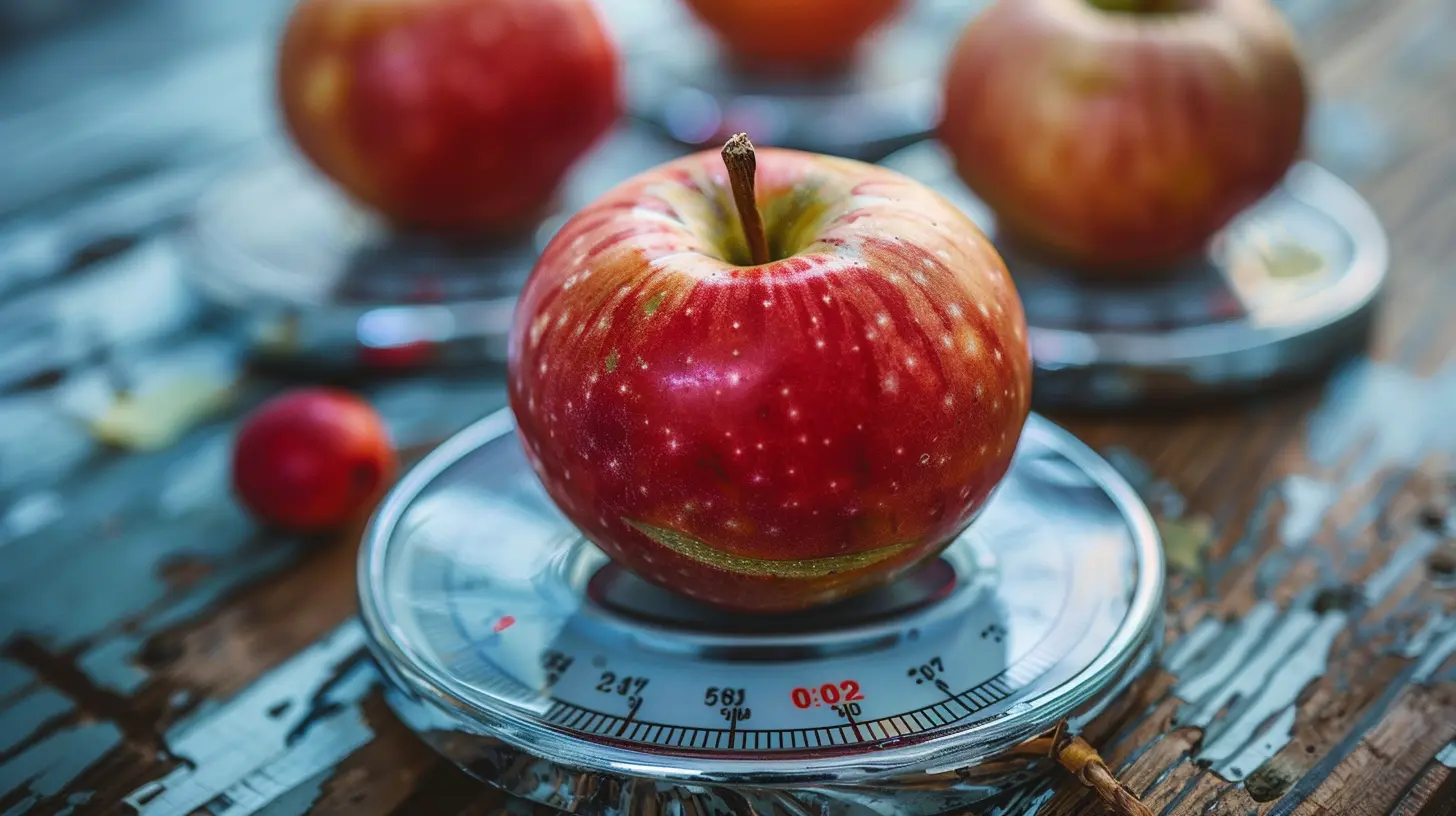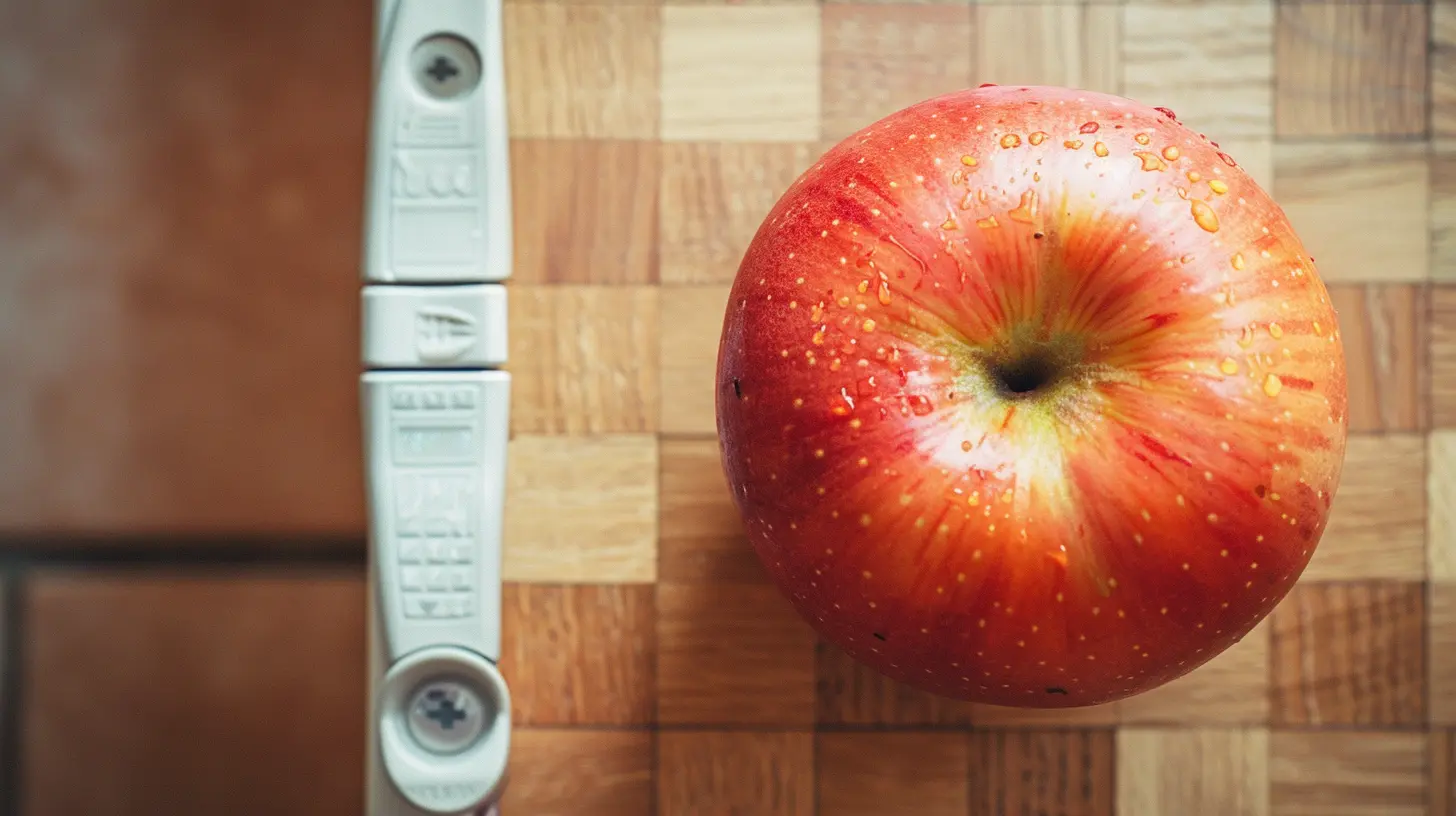How to Maintain Your Weight After Achieving Your Weight Loss Goals
13 September 2025
Congratulations! You worked your butt off (literally), dodged temptations, survived grueling workouts, and finally hit your weight loss goal. Now what?
Losing weight is hard, but keeping it off? That’s where the real challenge begins. You don’t want to undo all your progress and slide back into old habits. Maintaining your weight is a long-term game, and if you don’t have the right strategy, the pounds can creep back on faster than you think.
So, how do you keep your newfound physique without feeling like you’re constantly on a diet? Let's break it down. 
1. Stop Thinking Like You’re Still "On a Diet"
One of the biggest mistakes people make after losing weight is staying in "diet mode." You can’t live forever on calorie restrictions and food rules that make you miserable. Instead of seeing healthy eating as a temporary thing, shift your mindset to a sustainable, balanced lifestyle.Your weight loss journey doesn't end when you hit your goal. It just transitions into maintenance mode, and that means creating long-term habits—not short-term dieting gimmicks. 
2. Keep an Eye on Portion Sizes
It’s easy to fall into the “I can eat whatever I want now” mindset. But let’s be real—consuming oversized portions is how you gained weight in the first place.Even healthy foods can lead to weight gain if you're not mindful of portion sizes. So, stick to moderate servings and listen to your body’s hunger cues. If you're full, stop eating. Don't just clean your plate because it's there.
Pro tip: Use smaller plates and bowls. It tricks your brain into thinking you’re eating more than you actually are. 
3. Stick to a Regular Meal Schedule
Skipping meals or eating erratically can mess with your metabolism and make you more likely to overeat later. Maintain a consistent eating schedule that keeps your body fueled and prevents hunger-driven binges.Try to eat around the same time every day, and don’t go too long without food. Your body thrives on routine, and when you keep things predictable, it’s easier to maintain your weight. 
4. Keep Moving (But Don’t Overdo It)
Exercise isn’t just for losing weight—it’s for keeping it off, too. But here’s the deal: you don’t have to kill yourself in the gym seven days a week.Find a routine that fits your lifestyle and keeps you active. Whether it’s strength training, yoga, running, or even long walks, the key is to stay consistent. Aim for at least 150 minutes of moderate activity per week.
Oh, and don’t just rely on exercise to "burn off" bad eating habits. It’s much easier to control what goes into your body than to spend hours trying to work it off.
5. Weigh Yourself (But Don’t Obsess Over It)
Stepping on the scale once or twice a week helps you catch weight fluctuations before they spiral out of control. But don’t freak out over every little change—your weight naturally fluctuates due to water retention, muscle gain, or even a salty meal.The key is to spot trends. If you notice the numbers creeping up consistently, it’s time to reassess your eating and activity levels.
6. Eat Mindfully (No More Mindless Snacking!)
Ever find yourself devouring a bag of chips while binge-watching Netflix, only to realize you’ve eaten the whole thing? Yeah, we’ve all been there.Mindless eating is a huge culprit for weight regain. Pay attention to what you're eating and why. Are you actually hungry, or are you bored, stressed, or just eating out of habit?
To stay in control, eat slowly, savor each bite, and avoid distractions like TV or scrolling on your phone. When you're mindful of your food, you're less likely to overeat.
7. Prioritize Protein and Fiber
What do protein and fiber have in common? They both keep you full longer and help prevent unnecessary snacking.- Protein: Helps maintain muscle mass and keeps hunger in check. Lean meats, eggs, fish, beans, and dairy should be staples in your diet.
- Fiber: Keeps your digestion on track and reduces cravings. Load up on veggies, fruits, whole grains, and legumes.
A diet rich in protein and fiber ensures you stay satisfied, making it easier to maintain your weight without feeling deprived.
8. Stay Hydrated
Sometimes, your body confuses thirst with hunger. Before reaching for a snack, try drinking a glass of water. Hydration is key for digestion, metabolism, and energy levels.Stick to water as your main beverage and limit sugary drinks that pack on extra calories. If plain water bores you, add lemon slices, cucumber, or berries for a refreshing twist.
9. Get Enough Sleep
Think sleep has nothing to do with maintaining weight? Think again. Lack of sleep messes with your hunger hormones, making you crave junk food and causing poor decision-making.Aim for at least 7-9 hours of quality sleep per night. When you're well-rested, you’re more likely to make smart food choices and have enough energy to stay active.
10. Keep a Healthy Relationship with Food
Food is fuel, not the enemy. You shouldn’t feel guilty for enjoying a slice of cake or a burger every now and then. The key is balance.- Follow the 80/20 rule: Eat nutritious, whole foods 80% of the time, and allow yourself some indulgences 20% of the time.
- Don’t demonize any food group. Carbs, fats, and proteins all have their place in a healthy diet.
- If you overeat one day, don’t beat yourself up—just get back on track the next day.
When you take the stress and restriction out of eating, maintaining your weight becomes much easier.
11. Surround Yourself with Supportive People
Your environment plays a huge role in your ability to maintain weight loss. If you're surrounded by people who constantly pressure you to "just have another slice" or question why you're eating healthy, it can be tough to stay on track.Find a support system—whether it’s family, friends, or an online community—that encourages your healthy habits. When the people around you support your lifestyle, maintaining weight feels much more natural.
12. Keep Setting New Goals
Maintaining your weight doesn’t mean becoming stagnant. Set new fitness and health goals to stay motivated—whether it’s running a 10K, improving your strength, or mastering a new athletic skill.New goals keep you focused and make sure you’re always working toward something, rather than just maintaining for the sake of it.
Final Thoughts
Losing weight is an achievement, but keeping it off requires just as much dedication. The secret? Ditch the "diet mentality" and focus on long-term habits that are realistic and sustainable.Listen to your body, stay active, eat well (but don’t deprive yourself), and find balance. Weight maintenance isn’t about perfection—it’s about finding what works for you and sticking with it.
You worked too hard to backslide now. Keep going, stay mindful, and own your progress like a boss.
all images in this post were generated using AI tools
Category:
Weight LossAuthor:

Sophia Wyatt
Discussion
rate this article
1 comments
Kristy Hughes
Maintaining weight after achieving your goals is a continuous journey of self-awareness and adaptability. It's not just about the scale—nurturing a balanced relationship with food and exercise fosters inner resilience. Embrace sustainable habits, celebrate small victories, and remember that this process reflects your commitment to lifelong health rather than a fleeting success.
September 23, 2025 at 5:00 AM

Sophia Wyatt
Absolutely! Maintaining weight is indeed a journey that requires ongoing self-awareness and adaptability. Embracing sustainable habits and celebrating progress are key to long-term success.


